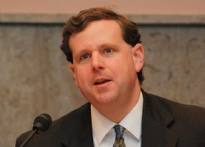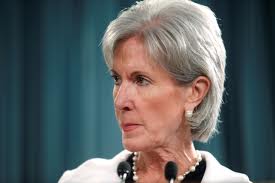
In what seems to be a larger decrease in healthcare spending than what can be explained just by the recession, experts say that doctors and patients may be changing their behavior in ways that are bringing healthcare costs down.
“The recession just doesn’t account for the numbers we’re seeing,” said David Cutler, a Harvard health economist and former adviser to President Obama. “I think there’s much more going on.”
The slowing of the growth of healthcare spending has surprised economists, offering them a reason to hope that this development can bode well for the fiscal performance of the federal government.
Experts in the economics of healthcare believe that a large portion of the slowdown is due to the recession. When millions of Americans lost their jobs, they also lost their healthcare benefits that came with those jobs. Other people who are still employed but live in fear of being laid-off hesitate or refrain altogether from taking time off of work to go to the doctor, or have surgical procedures done, and do not have non-urgent procedures when there is simply not enough money.
The government’s outlay for Medicaid and Medicare, two of the largest pieces of the nation’s long-term debt pie, determines to a great extent the amount of that debt. If healthcare costs grow at a slower rate, then the pressure to drastically cut spending or increase taxes can be alleviated somewhat, which would be a welcome relief.
The fiscal years of 2009 and 2010 had the slowest growth rate for total national healthcare expenses in over 50 years, at under 4 percent annually. According to the figures from the Centers for Medicaid and Medicare Services the percentage that healthcare spending represented of total national economic activity remained the same in 2010 at 17.9 percent, instead or ballooning as it has done for many years in the past.
Since the drop in healthcare expenditures is more than what experts can explain by just the recession, academics, hospital administrators and policy makers are wondering if the unlikely is actually happening; doctors and their patients are making changes in their healthcare behavior.
“The tectonic plates might be beginning to shift,” said Karen Davis, the president of the Commonwealth Fund, a nonprofit research group in New York. “It’s hard to believe everything that’s been tried over the last decade to slow spending wouldn’t be making a difference.”
Not all healthcare observers are so optimistic that there is a real change in behavior, and are unwilling, until more information is in, to guess what is happening.
“If there’s something else going on, we don’t know what it is yet,” said Gail Wilensky, a health economist who headed Medicare and Medicaid during the administration of President George Bush. “The most honest thing to say is that, one, the reduction in use is greater than the recession predicts; two, we don’t understand why yet; and, three, you’d be foolhardy to say that we can understand it.”
Some other analysts who feel that there is a good chance that the slowdown in spending is due to changes in behavior are not so sure the trend will continue, as Professor Cutler said:
“If you asked me, ‘How confident are you that this is not just the recession?’ I’d say 75 percent,” but he added that he is less sure that the trend will continue.


